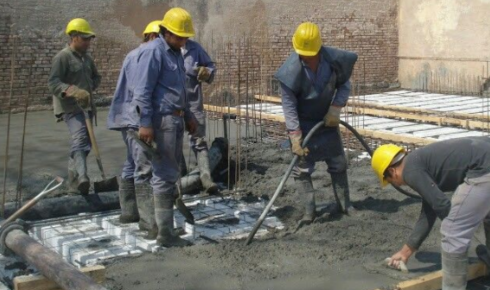The real estate industry is one of the most document-heavy sectors, requiring legally binding contracts, mortgage agreements, lease documents, property disclosures, title deeds, and financial reports. Each transaction involves multiple stakeholders, strict regulatory oversight, and high-value assets—making accuracy, security, and efficiency non-negotiable.
While eSignatures have transformed contract execution across various industries, generic eSignature solutions often fail to meet the specialized demands of real estate transactions. Many eSign platforms are designed for simple, single-party document signing rather than the large file sizes, multi-party approvals, and compliance-heavy nature of real estate deals. There companies need best eSign for real estate
This blog explores the limitations of generic eSignature tools in real estate and introduces Certinal eSign—a digital signature solution, designed to handle large contracts, multi-party workflows, and high-security real estate transactions with ease.
The Unique Challenges of Real Estate Transactions
Unlike standard business contracts, real estate documents come with their own complexities. Generic eSignature solutions are often not equipped to handle these unique challenges.
Large and Complex Documents
Real estate transactions involve large files that go beyond standard digital agreements. These include:
- – Purchase agreements and sales contracts
- – Lease agreements and rental agreements
- – Mortgage contracts and financing documents
- – Title deeds and ownership records
- – Property disclosures and legal compliance documents
- – Blueprints, floor plans, and land surveys
Why generic eSign platforms fail:
- Most eSignature solutions impose a file size limit of 10–25MB, making it difficult to upload large contracts, legal disclosures, and property documents.
- Compressing or breaking documents into smaller parts leads to disorganized paperwork and potential legal risks.
Certinal’s Solution: Certinal allows document uploads of up to 250MB, making it ideal for real estate professionals handling large files.
Multi-Party Signing Workflows
A single real estate transaction can involve multiple signers across different locations, including:
- – Buyers and sellers
- – Real estate agents and brokers
- – Attorneys and legal representatives
- – Mortgage lenders and banks
- – Title companies and escrow officers
Challenges with generic eSignature tools:
- – Many platforms lack structured signing workflows, leading to disorganized approvals, missed sign-offs, and delayed closings.
- – No role-based permissions—agents, brokers, and attorneys may need different levels of access to documents.
- – Lack of real-time tracking—status updates and notifications are not always instant, making it hard to follow up on pending signatures.
Certinal’s Solution: Certinal offers automated signing workflows that:
1. Assign signing roles and access levels to each participant.
2. Enable guided approvals to ensure documents are signed in the correct order.
3. Provide real-time tracking and notifications, reducing delays and missed signatures.
Compliance and Legal Validity
Real estate contracts must meet strict global and regional compliance standards to ensure legally binding agreements.
Key regulations governing eSignatures in real estate:
- – eIDAS (Europe) – Recognizes electronic signatures as legally binding across the EU.
- – ESIGN Act & UETA (United States) – Enforce eSignatures for real estate transactions.
- – Land Title and Mortgage Laws – Require digital signatures to be verifiable, secure, and tamper-proof.
Issues with generic eSignature providers:
- – Not all platforms provide court-admissible audit trails and blockchain verification for legal authenticity.
- – Insufficient identity verification—eSignatures must be linked to the signer’s unique credentials to ensure compliance.
- – Inadequate encryption and security—documents may not be protected against unauthorized access or tampering.
Certinal’s Solution:
- – Meets eIDAS, ESIGN, and UETA compliance standards, ensuring 100% legally valid eSignatures.
- – Offers blockchain-based audit trails, preventing fraud or document tampering.
- – Implements multi-factor authentication (MFA) and signer verification to ensure documents are signed by authorized parties.
Delays in Time-Sensitive Transactions
Timeliness is critical in real estate. Any delay in document execution can lead to:
- – Missed closing dates, affecting both buyers and sellers.
- – Expired financing approvals, forcing renegotiations.
- – Lost deals, especially in competitive markets.
How generic eSign solutions slow down real estate deals:
- – Lack of instant notifications—signers often don’t receive real-time updates.
- – No automatic reminders—agents must manually follow up with clients, delaying closings.
- – No bulk signing capabilities—handling multiple contracts for large property deals can become cumbersome.
Certinal’s Solution:
✔ Instant signer notifications reduce approval time.
✔ Automated reminders eliminate manual follow-ups.
✔ Bulk signing options allow real estate firms to process multiple contracts simultaneously.
Lack of CRM and Real Estate Software Integrations
Real estate professionals rely on industry-specific tools such as:
- – MLS (Multiple Listing Service) platforms
- – CRM software (Salesforce, Zoho, HubSpot)
- – Real estate transaction management software
Why integration is crucial:
- Manually uploading and downloading contracts wastes valuable time.
- Lack of data syncing results in errors and inconsistencies.
- Agents are forced to track documents separately, making management inefficient.
Certinal’s Solution:
✔ eSign API integrates with CRM, document management, and real estate platforms.
✔ Automates contract execution within existing workflows.
✔Reduces manual admin tasks, allowing professionals to focus on closing deals.
Why Certinal eSign Is the Best eSignature Solution for Real Estate
Certinal vs. Generic eSignature Providers
Feature
Generic eSignature Solutions
Certinal eSign
Maximum File Size
10–25MB
250MB
Multi-Party Signing
Limited
Advanced Workflow Automation
Legal Compliance
Partial
eIDAS, ESIGN, UETA Certified
Audit Trails & Security
Basic
Blockchain-Based Verification
Real-Time Notifications
No
Instant Alerts & Tracking
Bulk Signing
No
Yes
CRM & Real Estate Integration
Limited
Seamless Integrations
Why Real Estate Professionals Are Switching to Certinal
Many real estate firms are leaving generic eSignature providers because:
- – File size limits prevent seamless signing of large contracts.
- – Multi-party workflows are inefficient, leading to delayed deal closures.
- – Compliance risks make contracts legally vulnerable.
- – Lack of real estate CRM integrations adds manual work.
Certinal solves all these challenges by offering:
✔ 250MB document uploads for large real estate files.
✔ Automated, role-based signing workflows for multi-party deals.
✔ Legal compliance and blockchain-based security.
✔ Seamless CRM and real estate transaction software integration.
Conclusion
Real estate professionals can’t afford delays, compliance risks, or inefficient signing workflows. While generic eSignature solutions work for basic contracts, they fail to meet the demands of high-value, multi-stakeholder real estate transactions.
With large document support, workflow automation, legal security, and seamless integrations, Certinal helps real estate professionals close deals faster, eliminate bottlenecks, and ensure legally binding transactions.
Book a demo today and see how Certinal can transform your real estate signing process.


